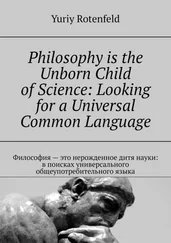is there is always an explanation, even if, of course, merely an arbitrary, erroneous, so-so kind of explanation; nevertheless, it is a fact that a fact has at least two lives, one a factive life and another, so to say, cerebral life, a cerebral mode of existence, and this is none other than an explanation, the explanations or, better still, set of explanations that overexplain the facts to death, which is to say ultimately annihilate or at least obscure the facts, and this hapless statement that “There is no explanation for Auschwitz” itself is an explanation, being used by its hapless author to explain that it would be better for us to remain silent about Auschwitz, that Auschwitz does not (or did not) exist, because, you see, the only thing for which there is no explanation is something that does not or did not exist. However, I most probably said, Auschwitz did — that is,
does —exist, and therefore there is also an explanation for it; what there is no explanation for is that there was no Auschwitz, that is to say, it would be impossible to hit upon an explanation for Auschwitz not coming into being, for the state of the world being such as not to be reified in the fact we call “Auschwitz” (if I may be allowed at this juncture to pay my respects to Dr. Obláth); yes, there would be no explanation precisely for an absence of Auschwitz, from which it follows that Auschwitz has been hanging around in the air since long ago, who knows, perhaps for centuries, like dark fruit ripening in the sparkling rays of innumerable disgraces, waiting for the moment when it may at last drop on mankind’s head, for in the end what is is, and the fact that it is is necessary because it is: The history of the world presents us with a rational process (quotation from H.), because were I to see the world as a series of arbitrary accidents, then that world would have, well, a rather unworthy view (self-quotation), so let’s not forget: To him who looks upon the world rationally the
world in turn presents a rational aspect: the relation is mutual — again something H. said, not H., Leader and Chancellor, but H., grand-scale visionary, philosopher, court jester and head butler of choice morsels to leaders, chancellors and other titled usurpers, who, I fear, was moreover absolutely right about this, all that is left for us is to examine closely the subsidiary question of
what kind of rational process it is of that world history presents to us and, furthermore,
whose rationality looks rationally upon the world in order that the relation may be — as indeed, I’m sorry to say, it is — mutual, I most probably said; the explanation for Auschwitz, I most probably must have said, to my way of thinking the explanation for Auschwitz, I most probably must have said, since that was and indeed still is my opinion, is inherent in individual lives, solely in individual lives; Auschwitz, to my way of thinking, is a rational process of individual lives, viewed in terms of a specific organized condition. If mankind were to start dreaming as a whole, that dream would necessarily be Moosbrugger, the good-natured sex killer, as we can read in Musil’s
The Man Without Qualities , I most probably said. Yes, individual lives, as a whole, and then the whole mechanics of carrying them through, that’s all there is to the explanation, nothing more, nothing else,
all things possible do happen; only what happens is possible, says K., the great, the sad, the wise one, who already knew from individual lives exactly what it would be like when criminal lunatics look upon the world rationally and the world in turn presents a rational aspect to them, that is to say, is obedient to them. And don’t tell me, I most probably said, that this explanation is just a tautological way of explaining the facts with facts, because yes, indeed, this explanation, hard as I know it may be for you to accept, that we are governed by commonplace felons — hard even when you already call them commonplace felons and know them as such— nevertheless as soon as a criminal lunatic ends up, not in a madhouse or penal institution, but in a chancellery or other government office you immediately begin to search for what is interesting, original, extraordinary, and (though you don’t dare to say so, except in secret, of course) yes, great in him, so you are not obliged to see yourselves as such dwarfs, and histories of the world as so absurd, I most probably said; yes, so that you may continue to look upon the world rationally and the
world in its turn may present a rational aspect to you. And that is entirely understandable, even entirely commendable, even if your method is neither “scientific” nor “objective,” as you would like to believe, it is not; it is sheer lyricism and moralizing insofar as it seeks to restore a rational, or in other words endurable, world order, and those who have been banished from the world subsequently edge their way back into the
world again through these back and front doors — anyone, that is, who is inclined to do so and who believes that the
world will henceforth be a place fit for people, but then that is quite another matter, I most probably must have said, the only problem is that this is how legends are born, we can learn from these “objective” lyrical works, these scientific horror stories, say, that the great man had an outstanding tactical sense — right? — as if an outstanding tactical sense were not precisely the means by which every paranoid and manic madman misleads and befuddles those around him and his doctors, and then that social conditions were such-and-such, while international politics were such-and-such, and then some, once philosophy, music and other forms of artistic hocus-pocus had corrupted people’s capacity to think, but above all that, when it comes down to it, the great man, let’s not mince words, was a
great man , he had about him something of the disarming, the fascinating, in short: something of the
demonic , that’s it, a demonic streak that was quite simply irresistible, especially if we have no will to resist, seeing that we just happen to be hunting for a demon; a demon is just what we’ve been needing for a long, long time for our squalid affairs, to gratify our squalid desires, the sort of demon, of course, who can be persuaded to believe that
he is the demon who will take all our own demoniacality on his shoulders, an Antichrist bearing the Iron Cross, and will not insolently slip through our fingers to string himself up before time, as Stavrogin did. Yes, you see and label them as common criminal lunatics, yet from the moment one lays his hands on the orb and scepter you immediately start to deify him, reviling him even as you deify him, listing the objective circumstances, reciting what,
objectively , he was right about, but what,
subjectively , he was not right about, what
objectively can be understood, and what
subjectively cannot, what sorts of hanky-panky were going on in the background, what sorts of interests played a part, and never running short of explanations just so that you can salvage your souls and whatever else is salvageable, just so that you can view commonplace robbery, murder and trafficking in souls in which we all, all of us sitting here, somehow play or have played a part, one way or another, in the grand opera-house limelight of world events, I most probably must have said, yes, just so that you may fish partial truths out of the great shipwreck in which
everything whole has been smashed , yes, just so as not to see before you, behind you, underneath you and at every turn the yawning chasm, the nothingness, the void, or in other words, our true situation, what it is you are serving and the prevailing nature of the prevailing régime, a dominating power which is neither necessary nor unnecessary but simply a matter of decisions, decisions that are made or not made in individual lives, neither satanic nor unfathomably and spellbindingly intricate, nor something that majestically sweeps us up with it, no, it is just vulgar, mean, murderous, stupid, hypocritical, and even at the moments of its greatest achievements at best merely well organized, I most probably must have said; yes, first and foremost,
Читать дальше












